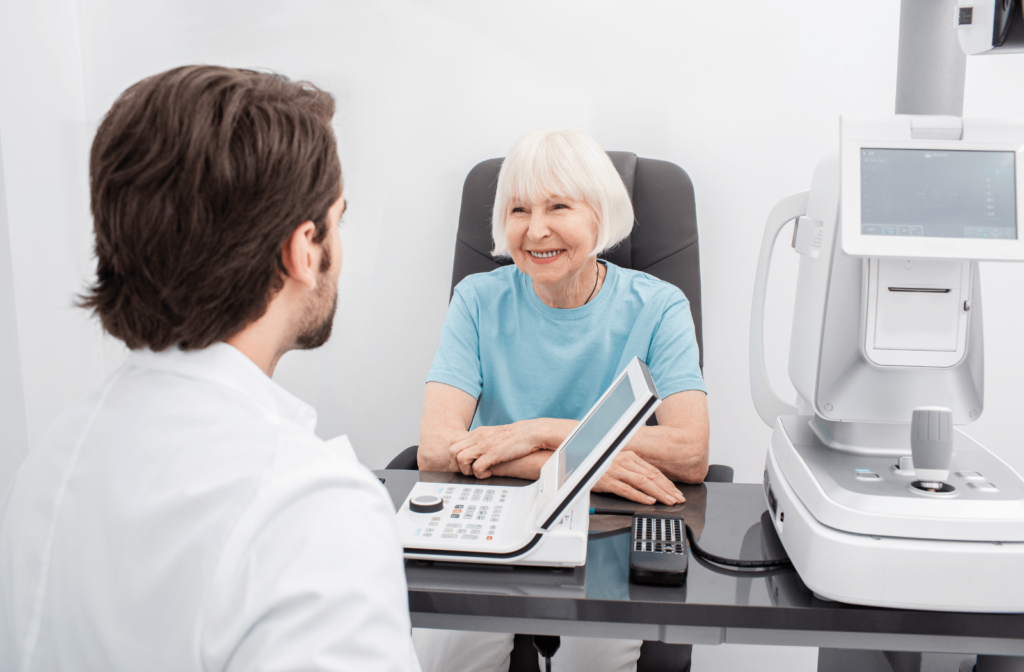An eye exam is a powerful tool that allows your optometrist to get a detailed look at your eye health. Eye exams are often associated with simply updating your glasses or contact lenses prescription. While that’s a primary function of eye exams, they do much more.
Let’s take a closer look at how often seniors should get an eye exam, including the importance of consistent exams and what to expect during the exam.
Eye Exam Frequency for Seniors
Senior eye exams are crucial. Canadians over the age of 65 have an increased risk of developing eye disease and conditions that can affect vision.
Your optometrist will recommend that adults over the age of 65 come in for a comprehensive eye exam annually.
Age-related eye diseases like cataracts, age-related macular degeneration, and glaucoma are some of the leading causes of blindness in Canada, so visiting your optometrist for consistent exams is essential.
Around 75 percent of visual impairment can be prevented if detected and treated early, so staying on top of your eye health can help preserve your vision. Your glasses and contact lenses prescription can also change dramatically as you age, so frequent check-ups are recommended.
Looking Out for Eye Disease
Many eye diseases can develop with little to no symptoms in the early stages. In fact, by the time you notice any issues, it can be too late to reverse the damage done to your vision.
Regular eye exams help your optometrist stay up-to-date with your vision and eye health needs. Your eyes are a window to the rest of your body, and beyond checking for eye disease, eye exams can also screen for systemic diseases like:
- Diabetes
- Arthritis
- High blood pressure
- Eye cancer
Early detection means early treatment and an improved outcome for people with possible eye disease issues.
What to Expect During Your Exam
Senior eye care is important, and your optometrist will consider all the details during your exam. Before the exam even begins, your optometrist will go through questions about your family and medical history, your current health situation, occupational hazards, and vision changes you may be experiencing.
A complete eye exam includes several crucial steps that include:
- Testing for peripheral vision
- Eye coordination testing
- Depth perception tests
- Colour vision tests
- Close and far focusing abilities
- Binocular vision
- How well your eyes are working together
After the exam, your optometrist will discuss the results, and if you need new glasses or contacts, the on-site contact lens fitter and inventory of quality, name-brand glasses will be available to you.
Picking out your new glasses is the fun part! You’ll be able to find the right pair of glasses that match your personality and style. You can walk away with a custom pair of your new glasses in only an hour!
Senior Eye Care Is Crucial
As we age, regular exams become even more important. Yearly eye exams allow your optometrist to remain familiar with your eyes and visual development. Early detection of eye disease and other vision issues is essential to get treatment as soon as possible.
Book an appointment with your optometrist and get the peace of mind that comes with an eye exam.



